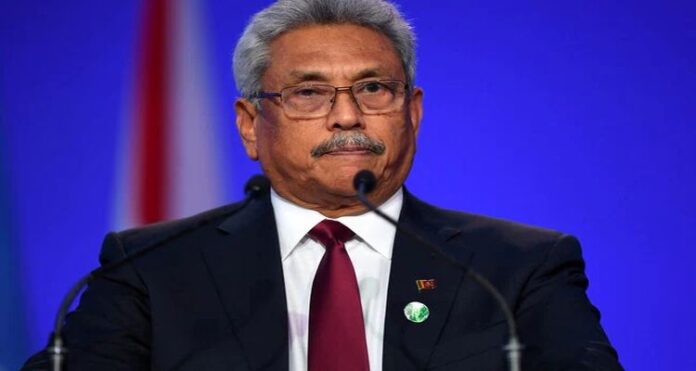
| Translate This News In |
|---|
Sri Lanka’s president’s resignation has been accepted, the country’s parliamentary speaker announced on Friday, after he defected earlier this week and alerted him from Singapore that he was stepping down. With the formal declaration, Gotabaya Rajapaksa, dubbed “The Terminator” for his ruthless crushing of Tamil rebels, becomes the first Sri Lankan head of the state to resign since the country adopted an executive presidency in 1978.
He emailed his withdrawal from Singapore after flying there from the Maldives, where he had fled after protesters overran his palace over the weekend.
Speaker Mahinda Yapa Abeywardana told reporters that “Gotabaya has legally resigned” with effect from Thursday. “I accepted my resignation.”
According to Sri Lanka’s constitution, Prime Minister Ranil Wickremesinghe will automatically become acting president until parliament can elect an MP to succeed Mr Rajapaksa for the remainder of his term.
Mr Abeywardana told reporters at his residence that the legislature would be summoned on Saturday and that he hoped to finish the election process “within seven days.”
Mr Rajapaksa’s resignation came after months of protests over what critics claimed was his mishandling of the island nation’s economy, which had resulted in severe hardships for its 22 million people.
A small crowd gathered late Thursday to celebrate his resignation on a seafront boulevard that provided as the headquarters of the protest group that ousted him.
Only a few hundred people were present to commemorate the occasion, with many veterans of the opposition movement exhausted from days of tear gas barrages and tense clashes with security forces.
“I certainly feel, and I think the crowd here definitely feels,” activist Vraie Balthaazar told AFP.
Singapore ‘private visit’
Mr Rajapaksa, his wife Ioma, and their two bodyguards showed up in Singapore on a Saudia flight from the Maldives.
Mr Rajapaksa had immunity from arrest as president, and it is believed that he wanted to travel oversea before stepping down to avoid being detained.
Former Maldivian President Mohamed Nasheed is thought to have played a behind-the-scenes role in bringing him out of the country, saying Mr Rajapaksa was afraid he would be killed if he stayed.
“I believe the President would not have stepped down if he was still in Sri Lanka and afraid of losing his life,” Nasheed said on Twitter.
Singapore’s foreign ministry confirmed Mr Rajapaksa was allowed to enter the city-state for a “private visit,” adding, “He has not requested or been granted asylum.”
According to Sri Lankan security officials, he is expected to stay in Singapore for a while before moving to the United Arab Emirates.

















